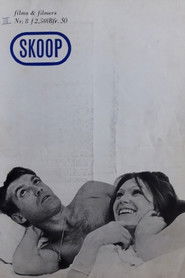detail profile george moorse

Riwayat Hidup
George Moorse was an American film director and screenwriter who made significant contributions to German cinema.
Educated at Hofstra College and Washington Square College in New York, he began his career in Germany as a screenwriter, collaborating with directors like Peter Lilienthal.
Moorse was a prominent figure in the New German Cinema movement, directing films such as Kuckucksjahre (1967) and Der Findling (1967), an adaptation of Heinrich von Kleist's novella.
His work is noted for its innovative storytelling and exploration of complex human emotions.
Info Pribadi
Peran Yang Di Mainkan George Moorse
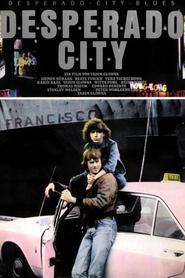 Skoda is the son of a...
Skoda is the son of a...Desperado City 1982
Skoda is the son of a wealthy, overbearing banker and rather than put up with his father to keep a privileged lifestyle, he has chosen to ditch the relationship and drive a taxi for a living. The film follows Skoda on his nightly rides through the city, and though different characters come and go, Skoda meets a kindred spirit in the form of a teenage woman who finds her own home life equally difficult to shoulder. The two young people are gradually attracted to each other, and they end up one night in Skoda's room together. At that moment, the older woman that Skoda had been involved with opens the door and discovers his infidelity. Skoda is living in her house and driving the taxi she gave him -- her commitment was abundantly clear from the beginning. Pushed over the edge, the older woman commits suicide -- and Skoda is blamed for her death by her ex-husband. He swears to avenge her, and the hunt for Skoda begins.
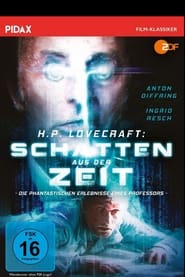 Based on HP Lovecrafts The Shadow...
Based on HP Lovecrafts The Shadow...H.P. Lovecraft: Schatten aus der Zeit 1975
Based on H.P. Lovecraft's The Shadow Out of Time, this is the story of a professor who suffers a seizure which results in total amnesia. As he recuperates he is so different his family deserts him. He gathers knowledge of things outside his specialty for five years, then has another seizure. When he reawakens he is himself again, but now he has no memory of the five years between the attacks. He begins having bizarre dreams, and tries to find out what he was doing during the five years he can't remember. What he discovers, combined with the growing reality of his dreams, convinces him that something much darker than a mere personality shift was going on.
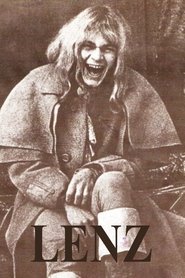 Film adaptation of the short Bchner...
Film adaptation of the short Bchner...Lenz 1971
Film adaptation of the short Büchner story of the same name, which tells of the stay of the psychotic Sturm und Drang poet Lenz in the home of the Alsatian priest and philanthropist Oberlin. The poet, whose pathological hallucinations are becoming increasingly unbearable, hopes for help from the gentle clergyman. But Oberlin, too, knows no advice; he regards his friend's illness as God-given.
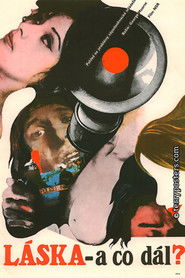 Munich 1968 a period of liberation student...
Munich 1968 a period of liberation student...Love and So Forth 1968
Munich, 1968: a period of liberation, student revolts, state repression. Amidst the restlessness, chemistry student Robbie meets the Irish cello player Nancy. They feel compelled to pursue a passion in spite of their careers. But does romantic love have a place in such convoluted, contesting times?
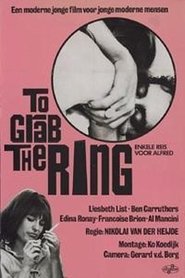 This film takes a decidedly satirical...
This film takes a decidedly satirical...To Grab the Ring 1968
This film takes a decidedly satirical look at the inner workings of the gangster underworld. Alfred Lowell is a washed-up actor sent to London to take care of some mob business. Alfred's mind is not on his job, as he prefers to probe his past for the reasons why he has failed as a thespian. He entertains thoughts of suicide, but his involvement in the gang prevents him from ending his life.
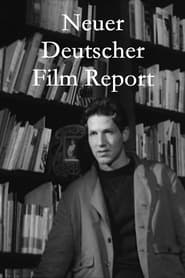 Interview film with the protagonists of...
Interview film with the protagonists of...Neuer Deutscher Film Report 1967
Interview film with the protagonists of the New German Cinema in 1966.
 A young man gets caught between...
A young man gets caught between...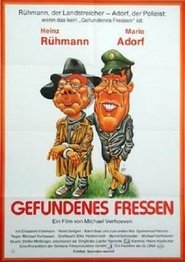
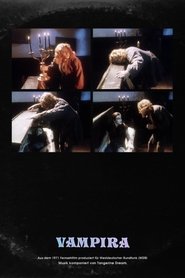 Two surveyors come under the spell...
Two surveyors come under the spell... Experimental fiction film about young people...
Experimental fiction film about young people...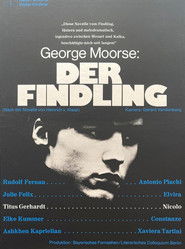 The story centers on the Roman...
The story centers on the Roman...